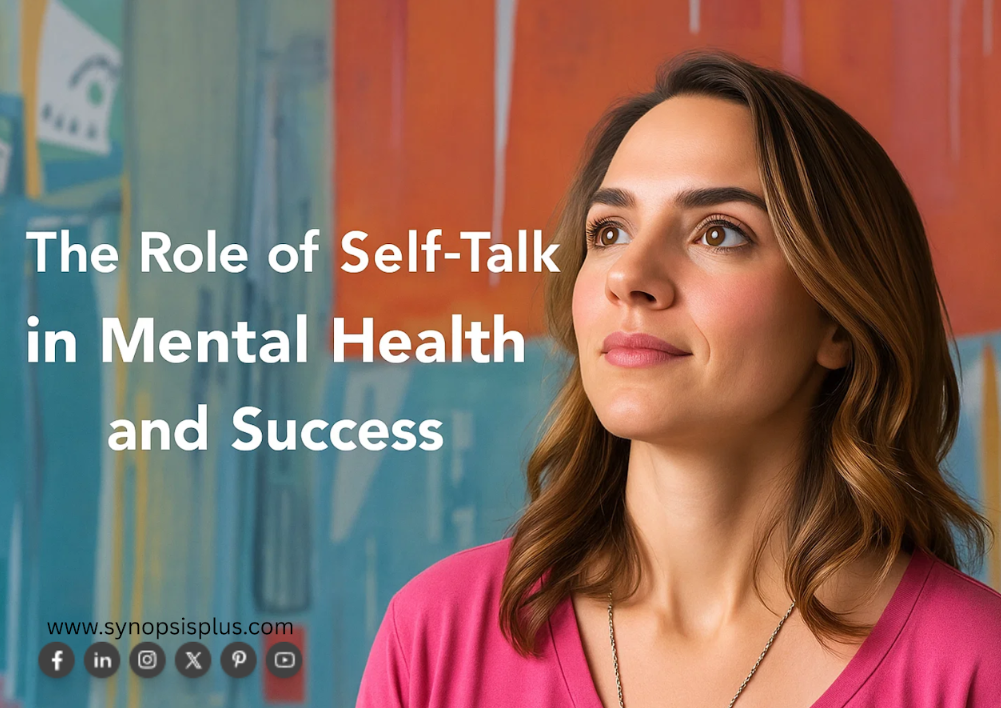
The Role of Self-Talk in Mental Health and Success
Introduction: Your Inner Voice Shapes Your Life
Imagine if you had someone?following you around all the time, giving you support or otherwise belittling you. But what if this friend?is, in fact, your inner voice?
Self-talk is nothing but how we?talk to ourselves. It can be very good for you and it can be very bad for you?and everything, how you deal with stress, how you build your confidence, how you accomplish success. But how is it working, and?how can you use that to your benefit? Let’s find out.
What is Self-Talk?
Self-talk is the dialogue going on?inside your head. It can be:
- Positive: “I can do this.”
- Negative:?“I screw everything up.”
- Neutral: “This is hard, but I can work it?out.”
You Internalize these thoughts, shaping your mood, self-belief, and?behaviors. What you tell yourself over and over again becomes?your reality.
The Impact of Self-Talk on Mental?Health
According to the studies, negative self-talk can only increase anxiety and depression, while positive self-talk can increase a person’s?self-esteem and emotional resilience.
Fact: A study showed?that using positive self-talk alleviates stress by decreasing cortisol (the stress hormone).
- MYTH: “Positive thinking can fix?everything.
- Reality: Positive self-talk does not eliminate problems,?but it helps you deal with them effectively.
An inner voice that?encourages is good for mental health, while the opposite increases stress and self-doubt. Here are a few instances of negative self-talk and suggestions on how to infuse a positive mindset into them:
How Self-Talk Impacts Success
Top performers athletes, entrepreneurs and leaders leverage self-talk to:
- Stay focused under pressure.
- Conquer self-doubt and disappointments.
- Increase motivation and keep pushing forward!
Fact: Studies have found that athletes who practice positive self-talk perform better under pressure compared to those who berate themselves.
Fun Fact: Michael Jordan told himself, “I can accept failure, but I can’t accept not trying.” His success was steel-built with self-talks.
Self-Talk: What type of self talk do you use?
1. Negative Self-Talk:
- “I’m not good enough.”
- “I always fail.”
? Harmful: Decreases confidence, increases?stress.
2. Positive Self-Talk:
- “I’ve been through adversity before; I can handle this.”
- “Mistakes help me grow.”
? Useful: Increases?confidence and problem-solving.
3. Neutral Self-Talk:
- “This is challenging, but I will do it in stages.”
? Best for:?Reasonably in frustrating situations.
4. Instructional Self-Talk:
- “Keep your posture straight.”
??Best for: Focus support for athletes or working professionals
5. Motivational Self-Talk:
- “One more step! I can do this.”
? Powerups: Resolve?and stubbornness.
How to Combat Negative Self-Talk
Simple Steps:
- Notice it: Be mindful of when you speak negatively to yourself.
- Rethink it: “I can’t do this” becomes “I’ll do my best.”
- Call Yourself by Name: Research suggests that talking to yourself using your name (“You can do this, Leslie!”) reduces stress.
- Daily affirmations: Say a few positive statements to yourself every morning.
- Be Around Positive People: The way people around you talk to themselves, affects the inner dialogue you have with yourself.
Fact: Third-person self-talk helps with emotion regulation and good decision-making, according to research.
Conclusion:
Don't expect to become an optimist overnight if you're a pessimistic person by nature. Your self-talk will gradually become more accepting of yourself and less critical of yourself, though, as you practice. You could also start to see the world less critically.
Having a generally positive attitude makes it easier to deal with daily stress in a more positive way. Your brain hears what you tell it. Feed it doubt and fear, and it will grow insecurity. If you give it the nourishment of encouragement and faith, it will blossom into confidence and success. Be kind to yourself. Then speak to yourself like a good friend would. It’s not simply a case of residing the right way, it begins in your thoughts.